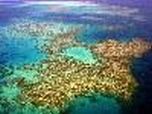
When to Go
Conditions are perfect between Easter and mid-June - beaches and ancient sites are relatively uncrowded; public transport operates on close to full schedules; and accommodation is cheaper and easier to find than in the mid-June to end of August high season. Conditions are once more ideal from the end of August until mid-October as the season winds down. Winter is pretty much a dead loss outside the major cities as most of the tourist infrastructure goes into hibernation from the middle of October till the beginning of April. This is slowly changing, however; on the most touristy islands, a few restaurants, hotels and bars remain open year-round.
Conditions are perfect between Easter and mid-June - beaches and ancient sites are relatively uncrowded; public transport operates on close to full schedules; and accommodation is cheaper and easier to find than in the mid-June to end of August high season. Conditions are once more ideal from the end of August until mid-October as the season winds down. Winter is pretty much a dead loss outside the major cities as most of the tourist infrastructure goes into hibernation from the middle of October till the beginning of April. This is slowly changing, however; on the most touristy islands, a few restaurants, hotels and bars remain open year-round.
Historical Sites
|
Stats
|




